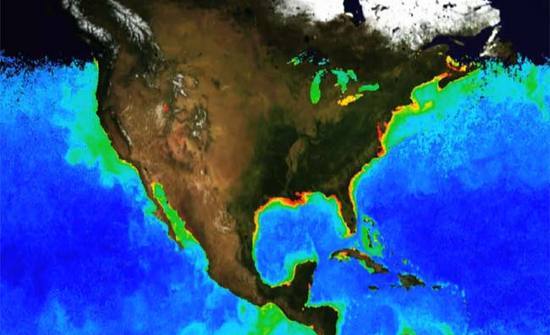
How Acid Oceans Could Kill Krill (Op-Ed)

Colin Cummings is a science intern at Oceana. This article was adapted from one that first appeared on the Oceana blog The Beacon. Cummings contributed this article to LiveScience's Expert Voices: Op-Ed & Insights.
Ocean acidification could cause the Southern Ocean Antarctic krill population to crash by the year 2300, new research finds. A collapse in the krill population would not only mean serious economic implications — since the crustacean is the region's largest fishery resource — but also dire consequences for whales, seals, penguins and an entire ecosystem of animals that depend on krill as a primary food source.
Antarctic krill is a keystone species in the fragile Southern Ocean ecosystem. Without a stable base of krill to support regional predators, each link in the food chain would deteriorate, eventually causing a whole-ecosystem collapse.
The study — published July 7 in the journal Nature Climate Change by So Kawaguchi of the Antarctic Climate and Ecosystems Cooperative Research Centre and his colleagues — reports that Southern Ocean habitats are likely to become high-risk areas for Antarctic krill within as little as a century. But how exactly does ocean acidification play a role?
Oceans absorb carbon dioxide and have effectively worked as a buffer against climate change for most of Earth's history. But as man-made carbon-dioxide emissions continue to rise at an alarming rate, the result is a more acidic ocean. The oceans are now changing too quickly for some marine species to adapt. The Antarctic waters are especially vulnerable, since cold water holds higher levels of carbon dioxide than warmer, more tropical waters.
Carbon dioxide interferes with krill eggs' ability to hatch. Since Antarctic krill eggs naturally sink into deeper, colder waters to hatch, high carbon dioxide in those deeper waters means hatch rates will be lower — that will spell disaster for the species’ populations and subsequently the entire Southern Ocean ecosystem.
The only truly effective way of combating ocean acidification and climate change is to reduce carbon dioxide emissions. Oceana is currently working to reduce the causes and effects of ocean acidification by supporting clean, renewable offshore wind development and fighting to prevent the expansion of offshore oil and gas drilling. If humanity does not take action now, the Earth's oceans will reach a tipping point at which ecosystem collapse can no longer be prevented.
Get the world’s most fascinating discoveries delivered straight to your inbox.
This article first appeared as A More Acidic Ocean May Wipe Out Antarctic Krill on the Oceana blog The Beacon. The views expressed are those of the author and do not necessarily reflect the views of the publisher. This article was originally published on LiveScience.com .
 Live Science Plus
Live Science Plus





